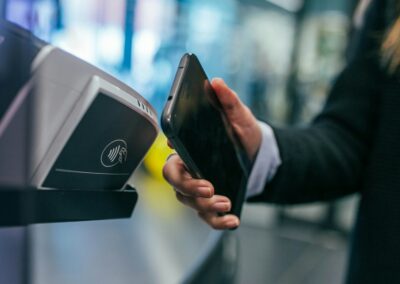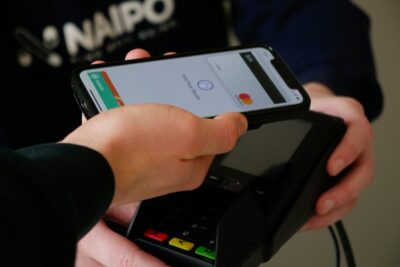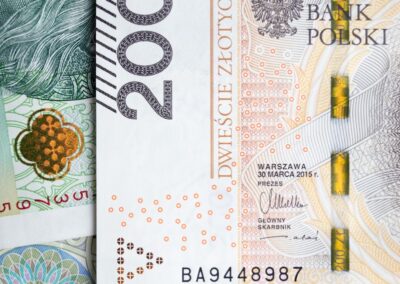How Blockchain is Transforming Remittance Services in the Middle East
Introduction to Blockchain in Remittance Services
Blockchain technology in remittance services is providing a more affordable and efficient option for sending money across borders. In Saudi Arabia and UAE, where remittances play a significant role in the economy, the integration of blockchain is enhancing the speed, security, and cost-effectiveness of international money transfers. As major financial hubs, Riyadh and Dubai are leading the way in adopting this innovative technology to revolutionize the remittance industry.
Remittance services traditionally rely on multiple intermediaries, which often result in high fees and long processing times. Blockchain technology, however, eliminates the need for intermediaries by enabling direct peer-to-peer transactions on a decentralized ledger. This not only reduces the costs associated with remittances but also ensures that transactions are processed quickly and securely. In Saudi Arabia, the adoption of blockchain in remittance services aligns with Vision 2030, which aims to modernize the economy and promote technological advancement.
Similarly, the UAE is embracing blockchain technology to enhance its financial services sector. The Dubai Blockchain Strategy aims to make Dubai the first city fully powered by blockchain, promoting the widespread adoption of this technology across various industries, including remittances. By leveraging blockchain, financial institutions in Dubai can offer more efficient and reliable remittance services, attracting global businesses and fostering economic growth. The integration of blockchain into remittance services supports the UAE’s vision of becoming a global fintech hub, providing innovative solutions that meet the needs of businesses and consumers alike.
Efficiency and Cost-Effectiveness of Blockchain Remittance Services
The use of blockchain technology in remittance services offers significant efficiency and cost-effectiveness benefits. Traditional remittance services often involve multiple intermediaries, each adding their own fees and contributing to longer processing times. Blockchain technology streamlines this process by enabling direct transactions between the sender and receiver, reducing costs and speeding up the transfer process.
In Saudi Arabia, the implementation of blockchain in remittance services can help reduce the high costs associated with traditional money transfer methods. By eliminating intermediaries, blockchain technology significantly lowers transaction fees, making remittances more affordable for users. Additionally, the speed of blockchain transactions ensures that funds are transferred quickly, which is particularly beneficial for individuals who rely on remittances for their daily needs. The efficiency and affordability of blockchain remittance services support Saudi Arabia’s Vision 2030 goals of enhancing financial inclusion and promoting economic diversification.
Dubai is also experiencing the benefits of blockchain technology in remittance services. The city’s vibrant fintech ecosystem is leveraging blockchain to provide faster, cheaper, and more secure money transfer solutions. By reducing the costs and time associated with remittances, blockchain technology is making financial services more accessible to a broader population. This not only improves the overall customer experience but also enhances the competitiveness of Dubai’s financial services sector. As Dubai continues to innovate in the fintech space, the adoption of blockchain in remittance services will play a crucial role in driving economic growth and financial inclusion.
Security and Transparency of Blockchain Remittance Services
Blockchain technology enhances the security and transparency of remittance services, providing a more reliable platform for cross-border payments. The decentralized nature of blockchain ensures that all transactions are recorded in a transparent and tamper-proof ledger, reducing the risk of fraud and ensuring the integrity of financial data.
In Saudi Arabia, the adoption of blockchain in remittance services is helping to mitigate the risks associated with traditional money transfer methods. Blockchain’s immutable ledger ensures that all transactions are accurately recorded and cannot be altered, providing a high level of security. This transparency is particularly important in the context of remittances, where the accuracy and reliability of transactions are crucial. By leveraging blockchain technology, Saudi financial institutions can offer more secure and trustworthy remittance services, enhancing customer confidence and trust.
Dubai is also at the forefront of using blockchain to improve the security and transparency of remittance services. The city’s commitment to becoming a global blockchain hub is reflected in its widespread adoption of blockchain-based solutions. Blockchain technology provides a secure platform for managing remittance transactions, ensuring that funds are transferred safely and transparently. The use of blockchain also facilitates regulatory compliance, providing a clear and auditable trail of all transactions. This level of transparency is essential for maintaining the integrity of the financial system and building trust among users. As Dubai continues to lead the way in blockchain innovation, the integration of blockchain into remittance services will be instrumental in enhancing the security and transparency of financial transactions.
The Impact of Blockchain on Financial Inclusion
Blockchain technology has the potential to significantly enhance financial inclusion by making remittance services more accessible and affordable for underserved populations. In regions like Saudi Arabia and UAE, where remittances are a critical source of income for many families, blockchain can play a key role in improving access to financial services.
In Saudi Arabia, the integration of blockchain in remittance services can help address the challenges faced by unbanked and underbanked populations. By providing a cost-effective and efficient way to transfer money, blockchain technology can enhance financial inclusion and empower individuals to participate more fully in the economy. This aligns with Saudi Arabia’s Vision 2030 goals of promoting economic diversification and improving the quality of life for its citizens.
Dubai is also leveraging blockchain technology to promote financial inclusion. The city’s focus on innovation and technology is helping to create a more inclusive financial system that caters to the needs of all residents. By reducing the costs and barriers associated with traditional remittance services, blockchain technology is making it easier for individuals to access financial services and send money across borders. This not only enhances the overall customer experience but also supports Dubai’s vision of becoming a global leader in fintech innovation.
The Future of Blockchain in Remittance Services
The future of blockchain in remittance services in Saudi Arabia and UAE looks promising, with continuous advancements and widespread adoption on the horizon. As blockchain technology evolves, it will become even more integral to the financial systems of these regions, offering enhanced efficiency, security, and financial inclusion.
In Saudi Arabia, the ongoing efforts to integrate blockchain into various sectors, including finance, will ensure that the country remains at the forefront of technological innovation. The government’s support for blockchain research and development, combined with the strategic Vision 2030 framework, will drive the adoption of blockchain-based remittance solutions, making money transfers more efficient and secure.
Similarly, in the UAE, the commitment to becoming a global fintech leader will spur the continued integration of blockchain in remittance services. Dubai’s thriving fintech ecosystem, supported by progressive regulations and a robust infrastructure, will foster the development and deployment of advanced blockchain technologies. This will not only improve remittance services but also pave the way for new and innovative financial products and services.
Conclusion: Embracing Blockchain for Modernized Remittance Services
The integration of blockchain technology in remittance services is transforming the industry in Saudi Arabia and UAE, providing a more affordable and efficient option for sending money across borders. By leveraging blockchain, financial institutions can offer faster, more secure, and more reliable money transfer solutions, benefiting businesses and consumers alike. The enhanced efficiency, security, and financial inclusion offered by blockchain technology support the strategic goals of both Saudi Arabia’s Vision 2030 and the UAE’s vision of becoming a global fintech hub.
As Saudi Arabia and UAE continue to embrace technological innovation, the adoption of blockchain in remittance services will play a crucial role in driving economic growth and financial inclusion. By staying at the forefront of blockchain research and development, these regions are setting new standards in financial innovation, positioning themselves as leaders in the global fintech landscape. The future of blockchain in remittance services is bright, promising a more efficient, secure, and inclusive financial system for all.
—
#blockchaintechnology #remittanceservices #SaudiArabia #UAE #crossborderpayments #financialtechnology #Riyadh #Dubai #affordableremittances #efficientmoneytransfers























